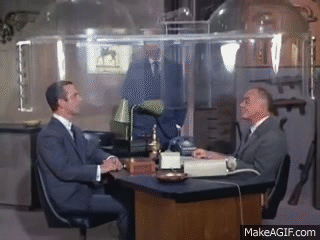The US dollar is broadly lower following President Trump’s comments yesterday, criticising Fed policy and reiterating his previously made claim that China and the EU are manipulating their currencies. We suggested that last week’s presidential tweet that identified strong capital inflows into the US may not have been written by President Trump. The qualification of a superlative was not his style. Trump did not talk the dollar down on Monday as much as criticize the Fed’s monetary policy, which in the mind of investors, is arguably even more sacrosanct than the strong dollar policy.

The President did not seem to offer much of an explanation for his assertion that the Fed should be more accommodating. “I should be given some help by the Fed,” Reuters quoted him as saying. Trump also warned that he will continue to criticize the Fed if it continues to hike interest rates. While we do not think that Fed will raise rates as much as the dot plots suggest, we do expect a few moves over the next 12 months, and if we are right, then we should be prepared for additional criticism by the Administration.
We do not expect investors outlook for Fed policy to change. It is convinced a September move is as done of a deal as these things get (~90%), and it leans toward a December hike but is not completely convinced (65%). Recall that the Fed’s median forecast increased to two hikes here in H2 because one member changed increased their forecast. The takeaway is that it is still seen as a close call. The January 2019 fed funds futures contract, a good proxy for where the market expects the effective fed funds rate to finish the year. The implied yield is 2.30%. It was 2.315% at the end of last week and 2.29% at the end of the previous week (August 10).
On the other hand, the dollar, which had been correcting lower since the middle of last week, sold-off further on the President’s comments and going forward may bear the brunt of investors’ angst over the verbal encroachment of the Fed’s independence. The interests of investors and the prerogatives of capital require a central bank that enjoys several degrees of freedom from the short-term desires of politicians. Many Wall Street veterans know the story of President Johnson manhandling William McChesney Martin, the Fed chair of the day trying to get him to pursue an easier monetary policy to fund the Great Society initiative and the war in Vietnam.











Leave A Comment